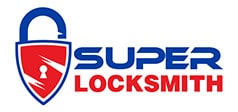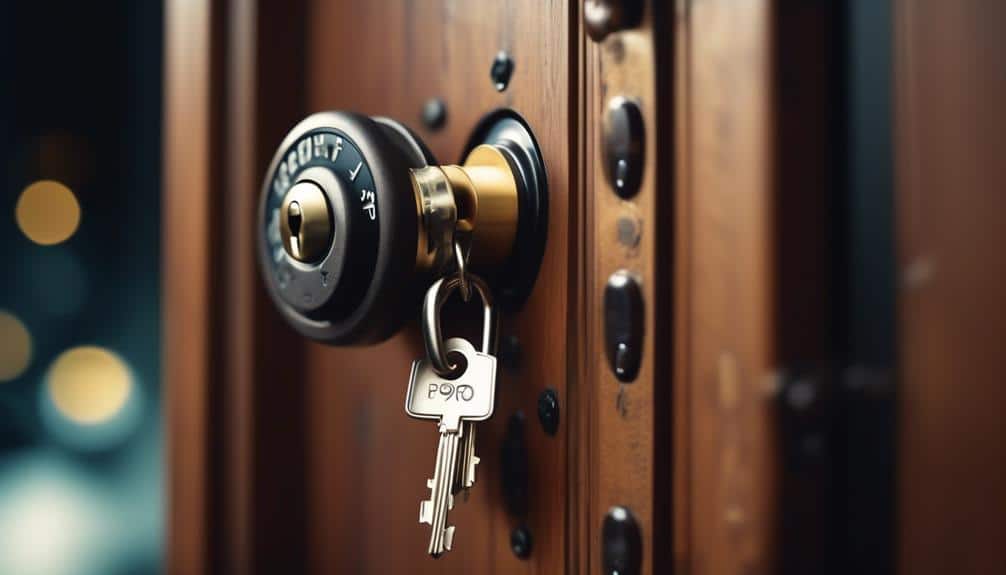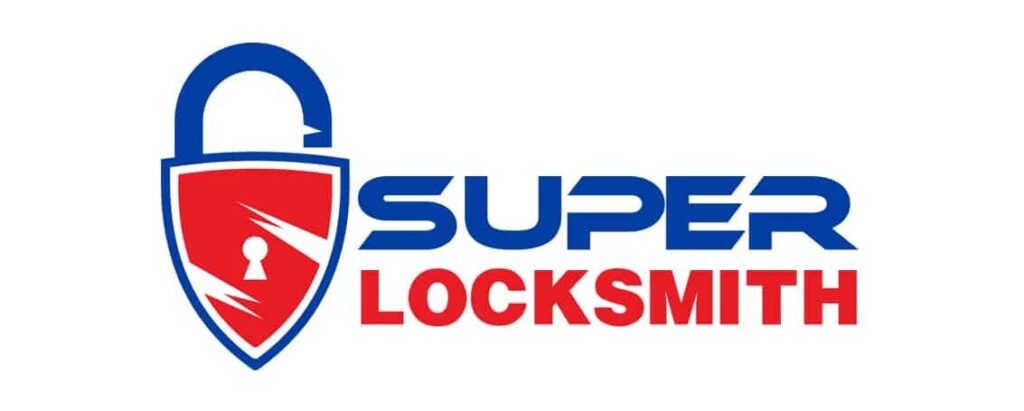When it comes to ensuring the security of condo master key systems, we understand the importance of taking proactive measures.
Picture this: you're the manager of a luxury condominium complex, responsible for safeguarding the residents' valuable possessions and maintaining their peace of mind.
In order to achieve this, it's essential to have a robust and foolproof master key system in place. But where do you begin? How can you maximize the security of your condo master key system?
In this discussion, we will share nine professional tips that will help you enhance the security of your condo master key system, providing you with the knowledge and strategies needed to protect your residents' homes and belongings.
Importance of Condo Master Key Systems
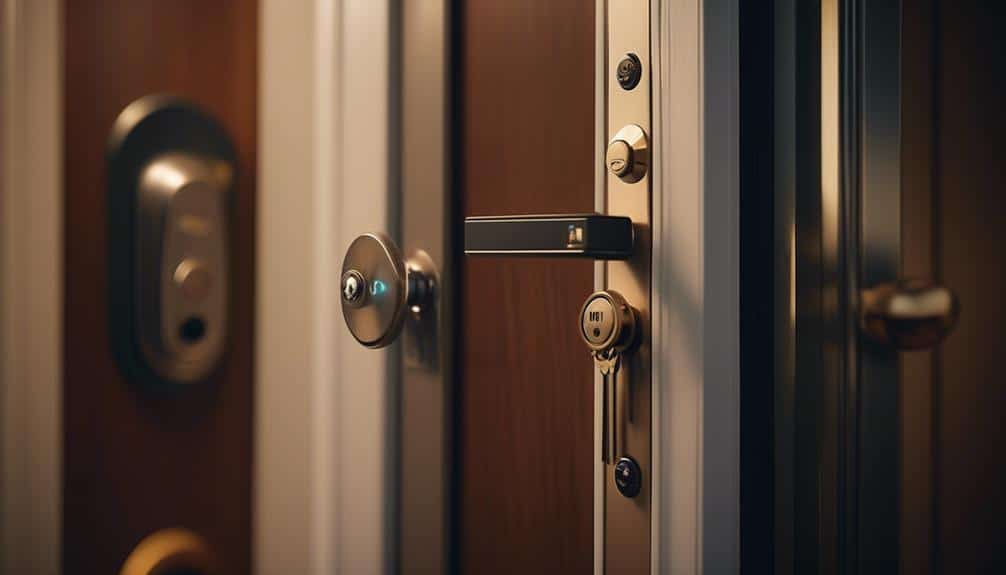
Condo master key systems play a crucial role in ensuring the security and convenience of residents and property managers alike. These systems offer numerous benefits that greatly outweigh the challenges they may present.
One of the primary benefits is enhanced security. With a master key system, property managers can easily control access to different areas of the condo complex. This helps prevent unauthorized entry and reduces the risk of theft or vandalism.
Additionally, residents can enjoy the convenience of having a single key that grants them access to all common areas, such as the gym, pool, or parking garage. This eliminates the need for carrying multiple keys and ensures a seamless experience for everyone.
Despite these benefits, implementing and maintaining a condo master key system does come with challenges. For instance, it requires careful planning and coordination to ensure that each resident has the appropriate level of access. It also requires regular maintenance and updates to address any issues that may arise.
However, with proper management and oversight, these challenges can be overcome, and the benefits of a condo master key system can be fully realized.
Understanding Key Hierarchy in Condominiums
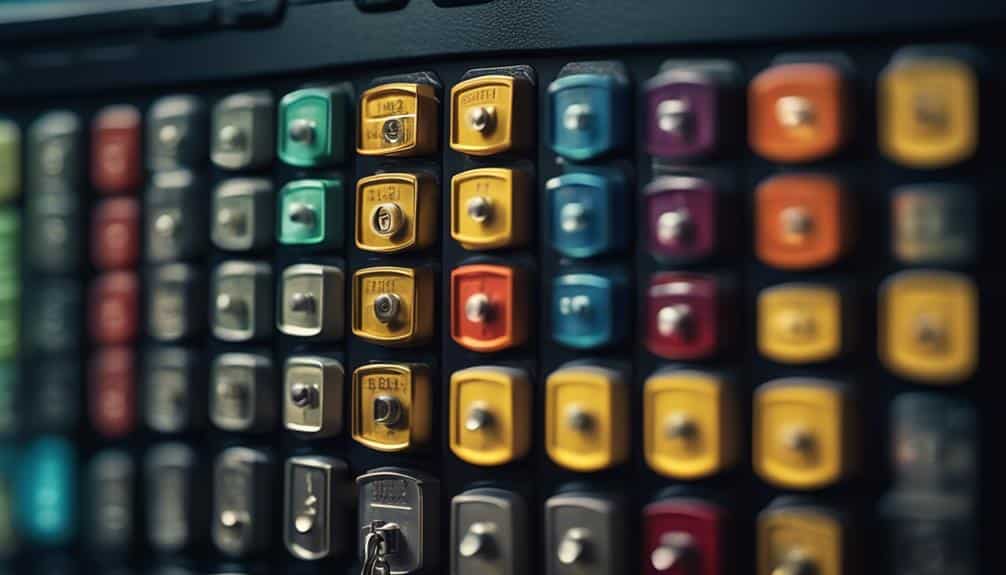
When it comes to understanding key hierarchy in condominiums, there are several important points to consider.
First, key levels and access determine who's access to which areas in the building.
Second, it's crucial to be aware of the limitations of the master key system, as it may not grant access to all areas.
Lastly, implementing a key distribution protocol is essential for ensuring that keys are handled securely and responsibly.
Key Levels and Access
Understanding the hierarchy of key levels and access is essential for efficiently managing security in condominium buildings. Key control and key management play a vital role in maintaining the safety and privacy of residents.
In condominiums, different levels of access are assigned to different individuals based on their roles and responsibilities. The key levels are typically categorized as master keys, sub-master keys, and individual unit keys.
Master keys provide access to all areas within the building, while sub-master keys grant access to specific sections or floors. Individual unit keys are solely for the residents' personal use.
Master Key Limitations
To fully grasp the key hierarchy in condominiums, it's essential to understand the limitations of master keys.
While master keys offer convenience and accessibility, they also present certain challenges in managing the security of a building.
One limitation is the potential for unauthorized access. If a master key falls into the wrong hands, it can compromise the security of multiple units.
Additionally, managing a complex master key system can be time-consuming and prone to errors. It requires meticulous record-keeping and strict control over who has access to the master keys.
Another challenge is ensuring that the master key system is regularly maintained and updated to prevent any potential vulnerabilities.
Key Distribution Protocol
The key distribution protocol in condominiums plays a crucial role in understanding the hierarchy of keys. A well-designed key distribution process ensures secure key management and prevents unauthorized access.
To establish an effective protocol, it's important to have a clear understanding of the different levels of access within the condominium. This includes identifying who's access to common areas, individual units, and any restricted areas.
A secure key management system should be implemented to track the distribution and usage of keys. This may involve issuing keys to authorized individuals, maintaining records of key holders, and implementing measures to prevent key duplication.
Regular audits and updates to the key distribution protocol are essential to maintain the security of the condominium.
Choosing the Right Locks for Enhanced Security
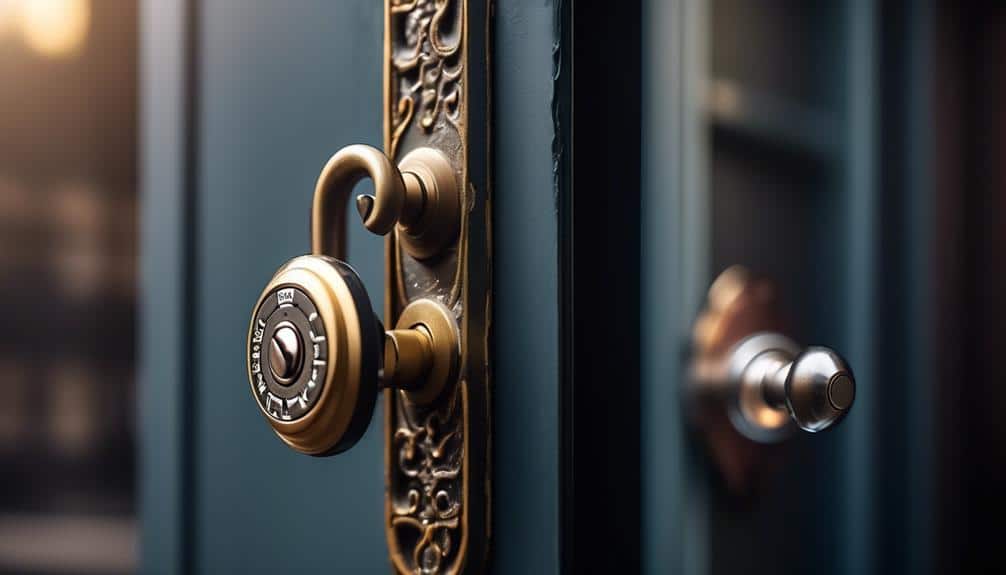
When it comes to enhancing security in condo master key systems, it's crucial to choose the right locks. There are various lock types available that offer different levels of security.
It's important to consider factors such as durability, resistance to picking or bumping, and the ability to withstand forced entry.
Lock Types for Security
For enhanced security, it's crucial to choose the right locks that provide maximum protection for your condo. When it comes to lock types, high security locks and keyless entry systems are two options that can greatly enhance the security of your condo.
High security locks are designed to resist picking, drilling, and other forced entry techniques. They often have additional features such as anti-bump and anti-pick pins, reinforced strike plates, and hardened steel components.
Keyless entry systems, on the other hand, eliminate the need for traditional keys and instead rely on codes, fingerprints, or access cards to unlock doors. These systems offer convenience and can be easily managed and monitored.
Whether you opt for high security locks or keyless entry systems, it's important to choose products from reputable manufacturers and ensure they're installed correctly to maximize their effectiveness in safeguarding your condo.
Enhanced Security Locks
To enhance the security of your condo, it's crucial to choose the right locks that provide maximum protection.
When it comes to enhanced security measures, advanced locking mechanisms are essential. These locks are designed with cutting-edge technology to deter break-ins and ensure the safety of your property and loved ones.
One option to consider is a high-security deadbolt lock. These locks are resistant to picking, drilling, and other forced entry attempts.
Another option is a smart lock, which offers added convenience and security. Smart locks can be controlled remotely and provide real-time alerts, allowing you to monitor and control access to your condo.
Implementing Restricted Key Access for Condo Units
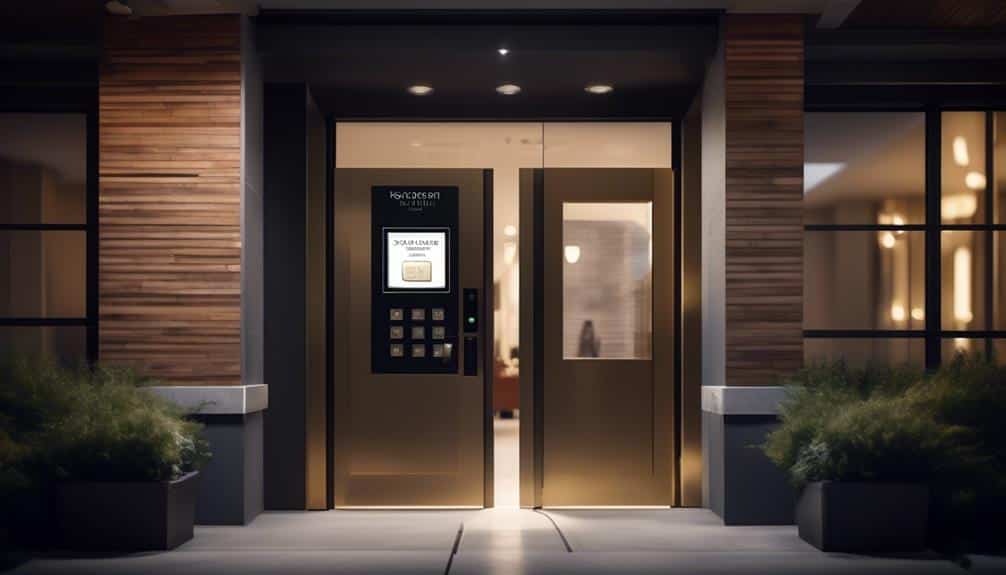
To ensure enhanced security and privacy, restricted key access can be implemented for condo units. By implementing restricted key protocols and effective key access management, condo owners can have peace of mind knowing that only authorized individuals can access their units.
Here are four key steps to implementing restricted key access for condo units:
- Conduct a thorough assessment: Begin by assessing the current key access system in place. Identify any vulnerabilities or areas that need improvement. This will help determine the necessary changes to implement restricted key access.
- Create a master key system: Develop a master key system that allows for restricted access to individual units. This system should provide unique keys for each condo unit, ensuring that only authorized individuals can enter.
- Establish clear access policies: Clearly define who has access to the restricted keys and under what circumstances. Implement strict protocols for key distribution and ensure that all residents and staff are aware of the access policies.
- Regularly update and maintain the system: As technology advances and security threats evolve, it's crucial to regularly update and maintain the restricted key access system. This includes rekeying locks when necessary and monitoring access logs to detect any potential security breaches.
Regular Maintenance and Inspection of Master Key Systems
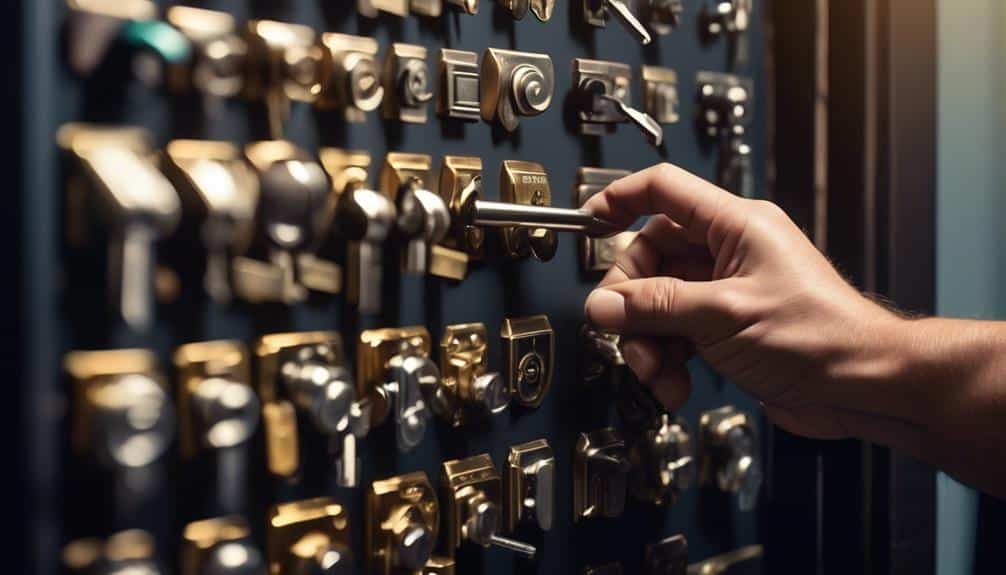
Now let's turn our attention to the crucial aspect of maintaining and inspecting master key systems for condo units, ensuring their continued effectiveness and security. Regular maintenance and inspection protocols are essential to keep these systems in optimal condition and prevent any potential security breaches. By following a proactive approach, condo associations can identify and address any issues promptly, ensuring the smooth functioning of the master key system.
Here are some key factors to consider when implementing regular maintenance and inspection protocols for condo master key systems:
| Factor | Description | Frequency |
|---|---|---|
| Key duplication | Regularly assess the need for key duplication and ensure strict control over the process. | Monthly |
| Lock cylinder checks | Inspect lock cylinders for signs of wear or damage and replace them if necessary. | Quarterly |
| Key inventory audit | Conduct regular audits to ensure accurate key inventory and identify any missing or unaccounted keys. | Annually |
Training Staff on Proper Key Management Protocols
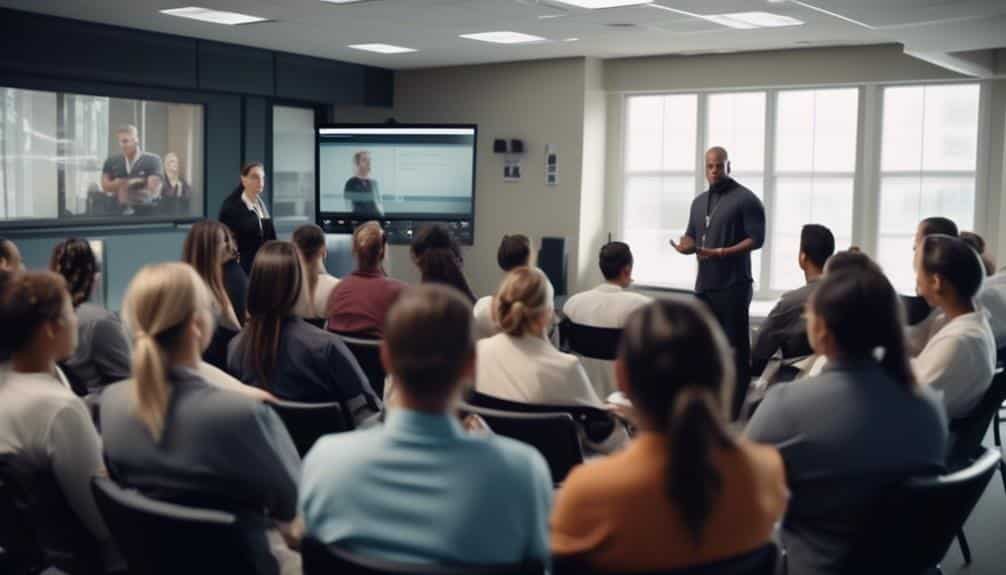
Staff training is crucial for ensuring proper key management protocols within a condo association. By providing comprehensive training, you can equip your staff with the knowledge and skills they need to effectively handle and secure keys. Here are four key tips for training your staff on proper key management protocols:
- Develop a training program: Create a structured training program that covers the essential aspects of key management, including key issuance, tracking, and storage. Provide clear guidelines and procedures to ensure consistency and adherence to protocols.
- Train on security measures: Educate your staff on the importance of maintaining security when handling keys. Teach them about the risks associated with unauthorized key access and the potential consequences of mishandling or losing keys.
- Emphasize accountability: Stress the importance of accountability when it comes to key management. Train your staff on the proper procedures for logging key usage and maintaining accurate records. Encourage them to report any discrepancies or incidents promptly.
- Regularly update training: Key management protocols and security measures may evolve over time. It's essential to keep your staff informed and up to date with any changes. Conduct periodic refresher training sessions to reinforce key management practices and address any questions or concerns.
Incorporating Technology for Added Security Measures
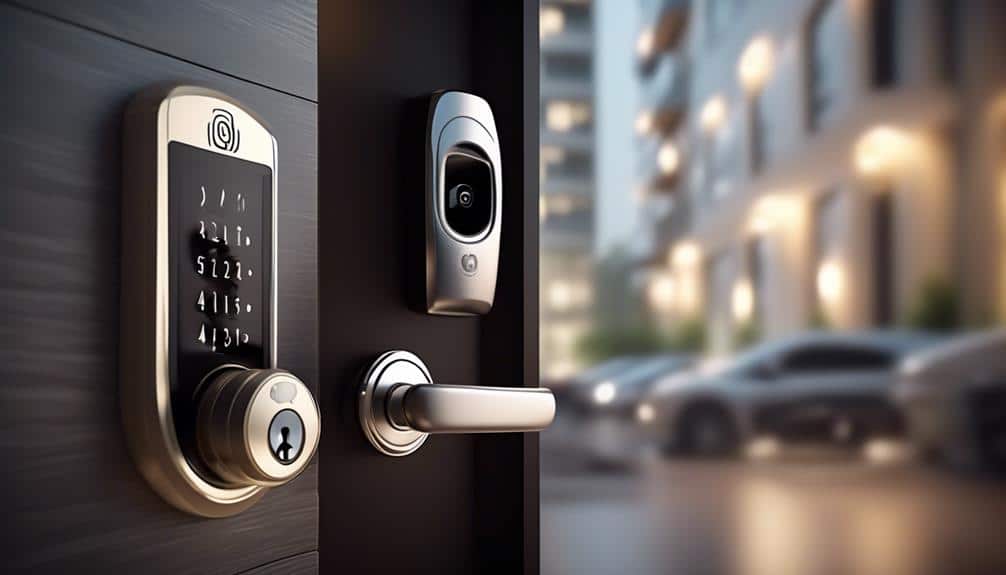
Incorporating technology can greatly enhance the security measures of a condo master key system. By integrating smart lock technology, condo owners and property managers can have better control and monitoring over access to their units. Smart lock integration allows for remote control and monitoring of locks, providing convenience and security. Biometric access control is another technology that can be incorporated into a condo master key system. This technology uses unique physical characteristics, such as fingerprints or iris scans, to grant access to authorized individuals. By implementing biometric access control, the risk of unauthorized access or key duplication is significantly reduced.
To illustrate the benefits of incorporating technology into a condo master key system, consider the following table:
| Technology | Benefits |
|---|---|
| Smart lock integration | Remote control and monitoring of locks. |
| Biometric access control | Enhanced security and reduced risk of unauthorized access. |
Enhancing Physical Security With Surveillance Systems
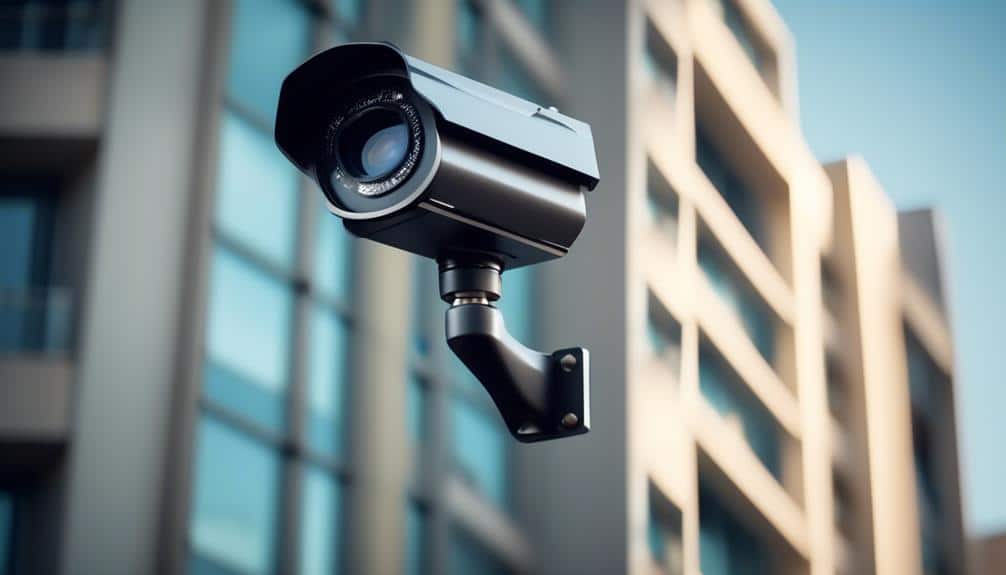
By adding surveillance systems to the existing technology of a condo master key system, the physical security of the property can be significantly enhanced. Surveillance integration plays a crucial role in ensuring the safety and protection of residents and their belongings.
Here are four ways that surveillance systems can enhance the physical security of a condo property:
- Improved monitoring: Surveillance cameras provide real-time monitoring of common areas, entrances, and exits, allowing for immediate response to any suspicious activity or security breaches.
- Deterrent effect: The presence of visible surveillance cameras acts as a deterrent to potential criminals, reducing the likelihood of theft, vandalism, or other criminal activities.
- Investigation and evidence: In the unfortunate event of a security incident, surveillance footage can provide valuable evidence for investigations, helping law enforcement identify perpetrators and support legal proceedings.
- Integration with security system upgrades: Surveillance systems can be integrated with other security measures such as access control systems and alarms, creating a comprehensive security solution that enhances overall protection.
Best Practices for Handling Lost or Stolen Keys
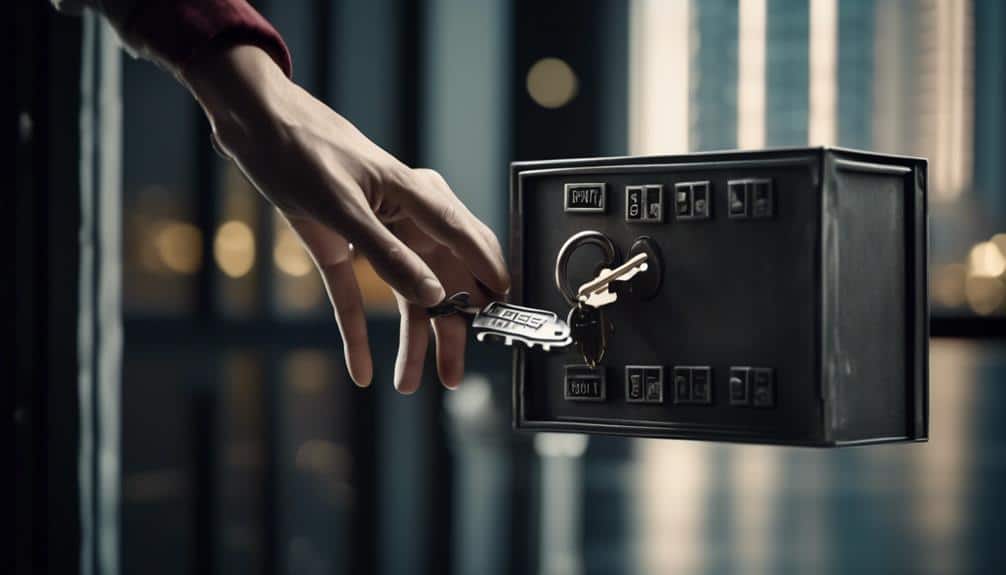
To ensure the security of the property, it's essential to implement best practices for handling lost or stolen keys. Proper key management is crucial in preventing unauthorized access and maintaining the safety of the condo complex. Here are some key practices to follow:
- Immediate Reporting: It's crucial to report lost or stolen keys promptly. By doing so, the necessary actions can be taken promptly to prevent any potential security breaches.
- Key Replacement: When a key is lost or stolen, it's essential to replace it as soon as possible. This ensures that the compromised key can no longer grant access to the property.
- Rekeying or Lock Replacement: In cases where a key is lost or stolen and there's a possibility of unauthorized access, rekeying or replacing the locks is recommended. This ensures that the lost or stolen key becomes useless and can't be used to gain entry.
- Access Control Systems: Implementing an access control system can enhance security by providing individual access credentials instead of physical keys. This allows for easier management of access rights and eliminates the risk of lost or stolen keys.
- Key Tracking System: Utilizing a key tracking system can help monitor the whereabouts of keys, making it easier to identify any missing keys and take appropriate action.
Frequently Asked Questions
How Do I Handle the Situation if a Resident Loses Their Condo Unit Key?
When a resident loses their condo unit key, we understand the urgency and potential security risk. To handle this situation, we've a streamlined process in place.
First, we verify the resident's identity and ownership. Then, we promptly replace the lost key and update our master key system accordingly.
Our goal is to efficiently manage key access for residents while ensuring the highest level of security. Rest assured, we prioritize your safety and take swift action when needed.
What Should Be the Protocol for Granting Key Access to Contractors or Service Providers?
Granting permissions to contractors or service providers requires a well-defined protocol to ensure security. Our approach focuses on contractor accountability and minimizing risk.
We verify their credentials, conduct background checks, and require them to sign confidentiality agreements. Access is granted on a need-to-know basis, with limited timeframes and monitored entry.
Regular audits and reviews of access logs are conducted to maintain security standards. By implementing these measures, we prioritize safety and protect the integrity of our condo master key system.
Are There Any Legal Requirements or Regulations Related to Condo Master Key Systems?
Legal requirements and regulations regarding condo master key systems are essential to ensure the security of the building. It's crucial to handle lost keys promptly and to have strict protocols for granting key access to contractors or service providers.
Modifying master key systems should only be done after careful consideration and with proper authorization.
Can a Condo Master Key System Be Modified or Customized Based on Specific Security Needs?
Yes, a condo master key system can be modified or customized based on specific security needs. There are various customization options available to enhance security, such as:
- Adding restricted keyways
- Implementing access control systems
- Integrating biometric technology
The benefits of customized systems include:
- Increased control over access
- Improved key management
- Enhanced overall security
What Should Be Done in the Case of a Security Breach or Unauthorized Key Duplication?
Handling security breaches and preventing unauthorized key duplication is crucial for maintaining the integrity of our condo master key system. In the event of a breach, we must act swiftly and decisively.
By conducting a thorough investigation, identifying the cause of the breach, and implementing necessary security measures, we can ensure the safety of our residents.
Additionally, regular audits and strict key control policies will help deter unauthorized duplication, maximizing the security of our system.
